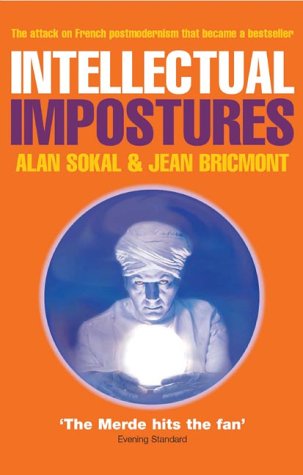Chomsky vs Žižek. Empiricism vs Philosophy/Theorists. Get the popcorn.
 Oh this is just superb. I am totally chuffed today because (thanks to Katie Hepworth) I have stumbled across a rich vein of both name-calling and insight in the great debate about the value of empiricism vs ‘theory’ or philosophy. And, gloriously, taken up by two giants of their respective fields: Noam Chomsky and Slavoj Žižek – going at it hammer and tongs.
Oh this is just superb. I am totally chuffed today because (thanks to Katie Hepworth) I have stumbled across a rich vein of both name-calling and insight in the great debate about the value of empiricism vs ‘theory’ or philosophy. And, gloriously, taken up by two giants of their respective fields: Noam Chomsky and Slavoj Žižek – going at it hammer and tongs.
So let’s start with Chomsky. In December 2012 he appears on a radio show called ‘Veterans Unplugged’ and totally sticks the knife into Zizek – calling him out as a charlatan and his work as meaningless and trivial.
“…there’s no theory in any of this stuff, not in the sense of theory that anyone is familiar with in the sciences or any other serious field. Try to find in all of the work you mentioned some principles from which you can deduce conclusions, empirically testable propositions where it all goes beyond the level of something you can explain in five minutes to a twelve-year-old. See if you can find that when the fancy words are decoded. I can’t. So I’m not interested in that kind of posturing. Žižek is an extreme example of it. I don’t see anything to what he’s saying. Jacques Lacan I actually knew. I kind of liked him. We had meetings every once in awhile. But quite frankly I thought he was a total charlatan. He was just posturing for the television cameras in the way many Paris intellectuals do. Why this is influential, I haven’t the slightest idea. I don’t see anything there that should be influential.”
Hilarious.
And then we get Žižek’s response:
http://www.openculture.com/2013/07/slavoj-zizek-responds-to-noam-chomsky.html
Which I have to say, seems to exemplify much of what Chomsky and others are talking about in that it seems largely incoherent whilst using an ad hominem attack (about some writing Chomsky did in the 70s about the Kmher Rouge) to devalue Chomsky’s reputation.
Now whilst I am still open to seeing the value in Derrida, Deluexe and others, and indeed think that I have gained some interesting ways of looking at the world from these authors, I have to say I agree with Chomsky. So much pomo seems to be deliberately obfuscated arcane language addressed to other ‘true believers’ that when stripped right back end up being trivial truism. So I’m down for this argument. I think, in fact, that Chomsky said it best way back in 1995 in this article here:
http://vserver1.cscs.lsa.umich.edu/~crshalizi/chomsky-on-postmodernism.html
It’s behind a paywall, so unless you have access to an academic library database collection, you may or may not be able to see it, so I’ll block-quote a bunch of it below.
“…As for the “deconstruction” that is carried out (also mentioned in the debate), I can’t comment, because most of it seems to me gibberish. But if this is just another sign of my incapacity to recognize profundities, the course to follow is clear: just restate the results to me in plain words that I can understand, and show why they are different from, or better than, what others had been doing long before and and have continued to do since without three-syllable words, incoherent sentences, inflated rhetoric that (to me, at least) is largely meaningless, etc. That will cure my deficiencies — of course, if they are curable; maybe they aren’t, a possibility to which I’ll return.”
This speaks to the tendency towards the self-reflective cabal – holders of secret knowledge – where the initiate must demonstrate obsequiousness before becoming initiated to the ‘inner circle’. Language is always a powerful tool for excluding and including people and controlling and manipulating a given discourse – and the complexity and opaqueness of the language used in some of this stuff I would suggest is indicative of this kind of ‘cult’ mentality.
“To add another facet, I am absolutely deluged with requests to speak and can’t possibly accept a fraction of the invitations I’d like to, so I suggest other people. But oddly, I never suggest those who propound “theories” and “philosophy,” nor do I come across them, or for that matter rarely even their names, in my own (fairly extensive) experience with popular and activist groups and organizations, general community, college, church, union, etc., audiences here and abroad, third world women, refugees, etc.; I can easily give examples. Why, I wonder. “
And this speaks to a most distressing and perhaps important aspect of this argument. I have no problem with people disappearing into some rarified and esoteric intellectual enclave – if it didn’t distract and divert attention away from the very real problems that people face every day. I would can’t help but feel that all the effort made in writing, critiquing, publishing, discussing, teaching, learning this stuff – carried out by so many people all over the world – might be better spent in actually trying to address some of these issues. But I dunno – it could be just me.
“Some of the people in these cults (which is what they look like to me) I’ve met: Foucault (we even have a several-hour discussion, which is in print, and spent quite a few hours in very pleasant conversation, on real issues, and using language that was perfectly comprehensible — he speaking French, me English); Lacan (who I met several times and considered an amusing and perfectly self-conscious charlatan, though his earlier work, pre-cult, was sensible and I’ve discussed it in print); Kristeva (who I met only briefly during the period when she was a fervent Maoist); and others. Many of them I haven’t met, because I am very remote from from these circles, by choice, preferring quite different and far broader ones — the kinds where I give talks, have interviews, take part in activities, write dozens of long letters every week, etc. I’ve dipped into what they write out of curiosity, but not very far, for reasons already mentioned: what I find is extremely pretentious, but on examination, a lot of it is simply illiterate, based on extraordinary misreading of texts that I know well (sometimes, that I have written), argument that is appalling in its casual lack of elementary self-criticism, lots of statements that are trivial (though dressed up in complicated verbiage) or false; and a good deal of plain gibberish. When I proceed as I do in other areas where I do not understand, I run into the problems mentioned in connection with (1) and (2) above. So that’s who I’m referring to, and why I don’t proceed very far. I can list a lot more names if it’s not obvious.”
Ahah! And here we get into what I have talked about previously – the misreading (deliberate or otherwise) of technical or empirical based work in order to build some enormous architectural edifice of meaning – which is simply not supported by the original data in any way.
“But let’s put aside the other historical work, and turn to the “theoretical constructs” and the explanations: that there has been “a great change from harsh mechanisms of repression to more subtle mechanisms by which people come to do” what the powerful want, even enthusiastically. That’s true enough, in fact, utter truism. If that’s a “theory,” then all the criticisms of me are wrong: I have a “theory” too, since I’ve been saying exactly that for years, and also giving the reasons and historical background, but without describing it as a theory (because it merits no such term), and without obfuscatory rhetoric (because it’s so simple-minded), and without claiming that it is new (because it’s a truism). It’s been fully recognized for a long time that as the power to control and coerce has declined, it’s more necessary to resort to what practitioners in the PR industry early in this century — who understood all of this well — called “controlling the public mind.” The reasons, as observed by Hume in the 18th century, are that “the implicit submission with which men resign their own sentiments and passions to those of their rulers” relies ultimately on control of opinion and attitudes. Why these truisms should suddenly become “a theory” or “philosophy,” others will have to explain; Hume would have laughed.”
Ouch.
 And there you have it. As far as I’m concerned Chomsky knocks it out of the box here, and I am looking forward to hearing from Zizek, any other theorist, my friends, or a commenter below to refute the central thrust of this argument.
And there you have it. As far as I’m concerned Chomsky knocks it out of the box here, and I am looking forward to hearing from Zizek, any other theorist, my friends, or a commenter below to refute the central thrust of this argument.
All this makes me really want to read this book too: Intellectual Impostures, by Alan Sokal and Jean Bricmont, which takes specific aim at the Post-modernists. Looks like good stuff.


 Address: 11 Silva St, Tamarama, Sydney, Australia
Address: 11 Silva St, Tamarama, Sydney, Australia Phone: +61 2 (0) 404 214 889
Phone: +61 2 (0) 404 214 889 Email:
Email: 